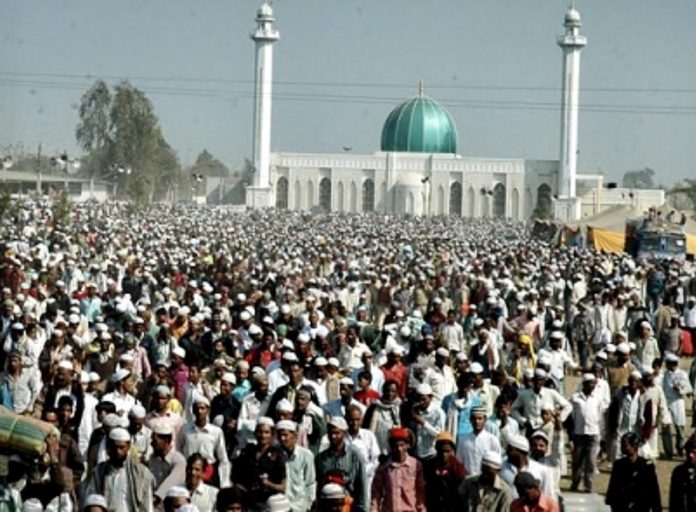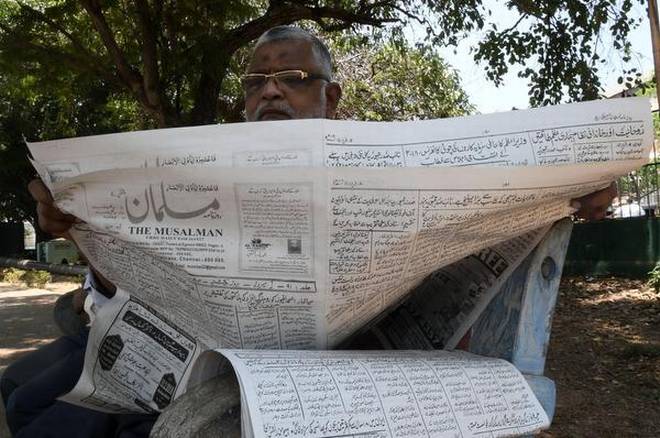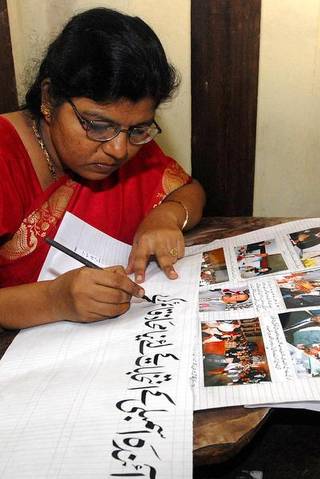Bhopal, MADHYA PRADESH :

Held for the first time in 1948, the Bhopal Ijtema is known for its massive participation of people and for promotion of peace and inclusivity.
Bhopal (Madhya Pradesh) :
The Alami Tabhligi Ijtema, an annual Islamic congregation held every year in Madhya Pradesh commenced today in the outskirts of the capital Bhopal. The four-day religious event is the third-largest Islamic congregation globally. The first such congregation was held 73 years ago. The event is taking place after two years of halt caused by the Covid-19 pandemic.
The congregation is not only popular for being the largest religious gathering in India but is also well known for the promotion of peace and inclusivity.
For the first time, international participants will not be in attendance at the congregation.
According to a report in Dainik Bhaskar, the congregation will be held on 300 acres of land. “20,000 volunteers will handle management. More than 17,000 taps are installed for ablution only. 7 crore litres of water will be consumed every day for drinking, ablution, and cleansing. Non-veg food is banned due to Lumpi Virus. There will be 45 parking slots and 7000 dustbins. 5000 volunteers will take care of the cleaning. 5 fire brigades and 6 fire bullets will be present there. 2000 policemen will manage security and 500 will handle the traffic management. There will be 3 hospitals of 10 beds each as well,” the report said.
History of the congregation
Shams Ur Rehman Alavi, a prominent journalist and former editor with Hindustan Times told TwoCircles.net that even though this grand congregation of Muslims is a purely religious event but in Bhopal, it means much more. “It has a unique relationship with the city and its inhabitants irrespective of their beliefs. Come winter and there is a buzz about the dates of Ijtima. Though such gatherings are now held in different cities across the country, the Ijtima here has an altogether different ‘connect’ with the people,” he said.
Shams Ur Rehman Alavi said that after the independence of the country, the first congregation was held in Bhopal in 1948 at Masjid Shakoor Khan.
It is said that the first congregation was a small gathering. Later, it was shifted to Taajul Masajid and became a big event. In 2002, it was shifted to outside the city in Eintkhedi as the gathering had become too big by then with a participation of 5 lakh people. Today, nearly 1.5 people congregate at the event. “People still get nostalgic when it was held in Tajul Masajid for over half a century. In those days, the temporary market that came to be associated with the gathering gave the congregation another meaning for Bhopalites,” Shams Ur Rehman Alavi said.
Preparations run for months
The preparations for the congregation began several months ago. Many youths from the nearby areas volunteer to help with the preparations. “This is farmland. It is very difficult to clean it and make it suitable for the congregation. We made drainage to discharge water from the farms with the help of a generator to dry the land sooner,” Abuzer, a volunteer, told TwoCircles.net.
Abuzer said all volunteer work is done by Muslims. “People willingly come here and do labour without demanding charges. We do it for the sake of Allah,” he said.
Atiq Ul Islam is a member of the organizing team that is looking after the preparations. He told TwoCircles.net that the 300 acres of farmland where the congregation is taking place is lent free by locals, which include both Muslims and non-Muslims.
“Non-Muslims have never refused to lend their lands to this congregation. We organize this Ijtima to please God and send a message to the world to follow God’s commandments which is to do good and refrain from evil,” Atiq Ul Islam said.
He said that the congregation is held to send a message of peace. “Every faithful attends this Ijtima,” he said.
Atiq Ul Islam informed that Muslim volunteers also take responsibility for security and traffic management. “The administration plays a supporting role by keeping an overall eye on things. Rest everything is managed by our volunteers,” he said.
Akram Ahmed Khan is a resident of Bhopal who has been attending the congregation since childhood. For many years, he has volunteered at the event.
Akram said that the congregation has a cross-functional team that has a dedicated system including a security team, transportation and commute team, road management (traffic management) team, parking team, and emergency and procurement (medical team). “The management skills I learned here have helped me in my professional life as well,” Akram Ahmed said.
For effective disposal of waste, the management collaborates with Bhopal Municipal Corporation (BMC). For its zero-waste, the congregation has earned laurels.
Huneza Khan is a student and a budding journalist from Bhopal, Madhya Pradesh. She tweets @KhanHuneza
source: http://www.twocircles.net / TwoCircles.net / Home> Lead Story / by Huneza Khan, TwoCircles.net / November 18th, 2022










